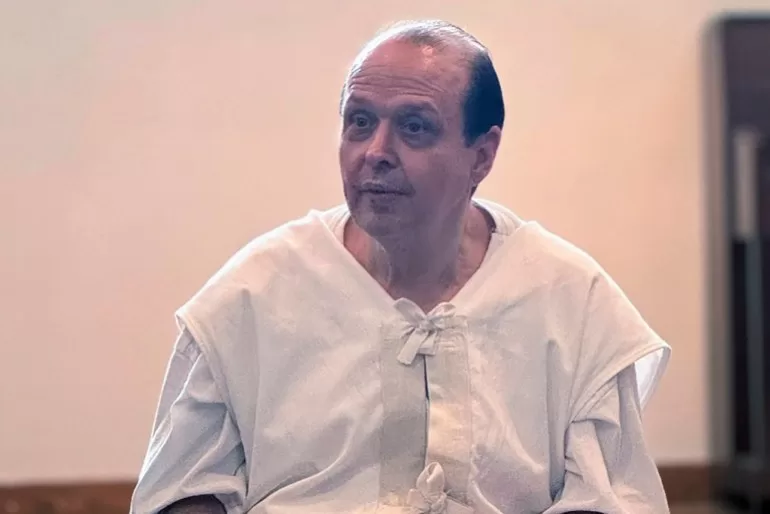A state judge in Texas has issued a last-minute decision to pause the execution of Robert Roberson, a man convicted in a controversial case of shaken baby syndrome.
Roberson is believed to be the first person ever sentenced to death in the United States for an alleged killing linked to the syndrome.
But on Thursday, with only hours to go until the sentence was carried out, Travis County Civil District Court Judge Jessica Mangrum issued a temporary restraining order halting the execution.
Roberson was convicted of murder in 2003 for the death of his two-year-old daughter Nikki Curtis a year earlier.
But he has strongly maintained his innocence. Experts have also cast doubt on the evidence used to convict him, and the last-minute order has brought relief to those who believed the execution would represent a miscarriage of justice.
“He’s an innocent man, and we’re very close to killing him for something he did not do,” Brian Wharton, the lead detective who investigated Curtis’s death. He has since become a vocal proponent for commuting Roberson’s sentence.
At the heart of the case was the prosecutors’ accusation that the infant Curtis died from shaken baby syndrome, a phrase used to describe head trauma stemming from the abuse of children younger than five.
Critics, however, have dismissed shaken baby syndrome as an unproven diagnosis, based on outdated science and studies of doubtful accuracy.
In January 2002, Roberson brought his daughter to an emergency room, where scans showed internal brain trauma. Curtis had been sick with a fever in the days prior, and Roberson said she had fallen out of her bed.
Some medical experts have suggested she likely died due to complications from pneumonia rather than abuse by Roberson, as prosecutors alleged.
His case has brought national attention to Texas, where a group including conservative lawmakers, criminal justice reform advocates and medical officials have cast doubt on Roberson’s guilt.
Roberson’s lawyers also argued that authorities misconstrued symptoms of their client’s autism as a lack of emotion after Curtis’s death.
Prosecutors had highlighted Roberson’s seemingly stoic nature as evidence of his guilt. But since his conviction, Roberson has been diagnosed with autism, which can affect the way people express themselves.
“Texas plans to execute Robert Roberson next Thursday — despite a conviction based on junk science. Even former detectives on his case believe Roberson is innocent,” the state branch of the American Civil Liberties Union said in a social media post last week.
Tell Gov. Abbott to stop this evening’s execution of Robert Roberson.
Roberson was convicted on junk science. The lead detective now says he should be free. Top GOP lawmakers want the execution halted.
The governor can halt this. Let Abbott know: https://t.co/TSP8F7YxRy
— ACLU of Texas (@ACLUTx) October 17, 2024
Thursday’s execution, however, was halted after a committee in the Republican-controlled state House of Representatives petitioned for a restraining order, in an effort to buy more time.
A number of lawmakers in the Texas House chamber — both Republicans and Democrats — had lobbied for the case to get another look.
The Texas Board of Pardons and Paroles had nonetheless rejected Roberson’s bid for clemency on Wednesday, and the US Supreme Court denied a request for a stay on the execution earlier on Thursday.
Robertson was scheduled to die on Thursday by lethal injection at a state penitentiary in Huntsville, Texas.
The use of lethal injection as a form of execution continues to be controversial in the US and has resulted in numerous “botched” efforts that critics say caused needless suffering for the condemned.
A 2023 Gallup poll found that people in the US continue to support the death penalty for those convicted of murder by a margin of 53 to 44 percent. However, 50 percent of respondents said that the death penalty was applied unfairly, while 47 percent said it was applied fairly.
